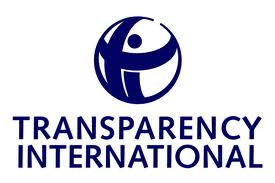 The recent revelation by the Wall Street Journal (WSJ) that as much as US$700 million have been channelled directly to Malaysian Prime Minister Najib Abdul Razak’s personal bank accounts is deeply shocking and appalling.
The recent revelation by the Wall Street Journal (WSJ) that as much as US$700 million have been channelled directly to Malaysian Prime Minister Najib Abdul Razak’s personal bank accounts is deeply shocking and appalling.
Although investigations are currently ongoing, the documents reviewed by the WSJ show the transfer of funds from banks, companies and government agencies with ties to the 1MDB that ended up in the Prime Minister’s personal account. If true, this incident is symptom of a larger problem at hand.
We, the GIAT (Governance, Integrity, Accountability and Transparency) coalition call for immediate reform to the way political parties and their election campaigns are financed and transparency in the personal accounts of politicians. In a 2005 report by Transparency International Malaysia and a policy brief by the Institute for Democracy and Economic Affairs on asset declarations, several recommendations were made. We reiterate the urgent need to implement the following priorities immediately:
1.Adopt a political financing and asset declaration act.
2.Public asset declarations of all members of the executive and legislative body including Senators and senior public officials.
3.Reforming the Elections Commissions to autonomously and independently regulate all political parites
4.Public release of political party accounts audited by an independent party
5.Full disclosure of political party and candidate financing.
GIAT, which includes Transparency International Malaysia, Centre to Combat Corruption and Cronyism (C4), Citizen’s Network for a Better Malaysia (CNBM), Friends of Kota Damansara, Sinar Project and The Institute for Democracy and Economic Affairs (IDEAS) believe that the Malaysian government must enact these reforms now or lose its credibility. The controversies over alleged corruption cases in GLICs and GLCs involving billions of ringgit used to fund political parties have a direct impact on our country’s economic health both short term and long term.
Most importantly, it is a gross abuse of trust from the rakyat, money that could have been used to provide better healthcare and public services for all Malaysians may have potentially been wasted for personal gain. Corruption in Malaysia now no longer involves abuse of entrusted power by one person but also involves a group colluding for collective gain across political, economic, and social spheres in Malaysia as well as foreign parties. It may take years to recover the potential debts incurred, which affects all Malaysians.
